It's easy to forget that most of the countryside landscapes we love are looked after by our farmers and growers. From Devon’s patchwork fields to remote Highland crofts, the food this hard-working community grows doesn’t just impact our nation’s health and economy, it has far-reaching effects on our local and global environments.
Understanding where our food comes from and how it is produced feels more important than ever. So what better way to get the full experience than to visit a farm near you?
If you want to eat local food or learn more about how it’s grown, you have many options. There are more than 1,500 farm shops across the UK, the 2022 County Show season isn’t over yet and our farming communities offer farm stays, petting barns, farm trails and tours all over the country.
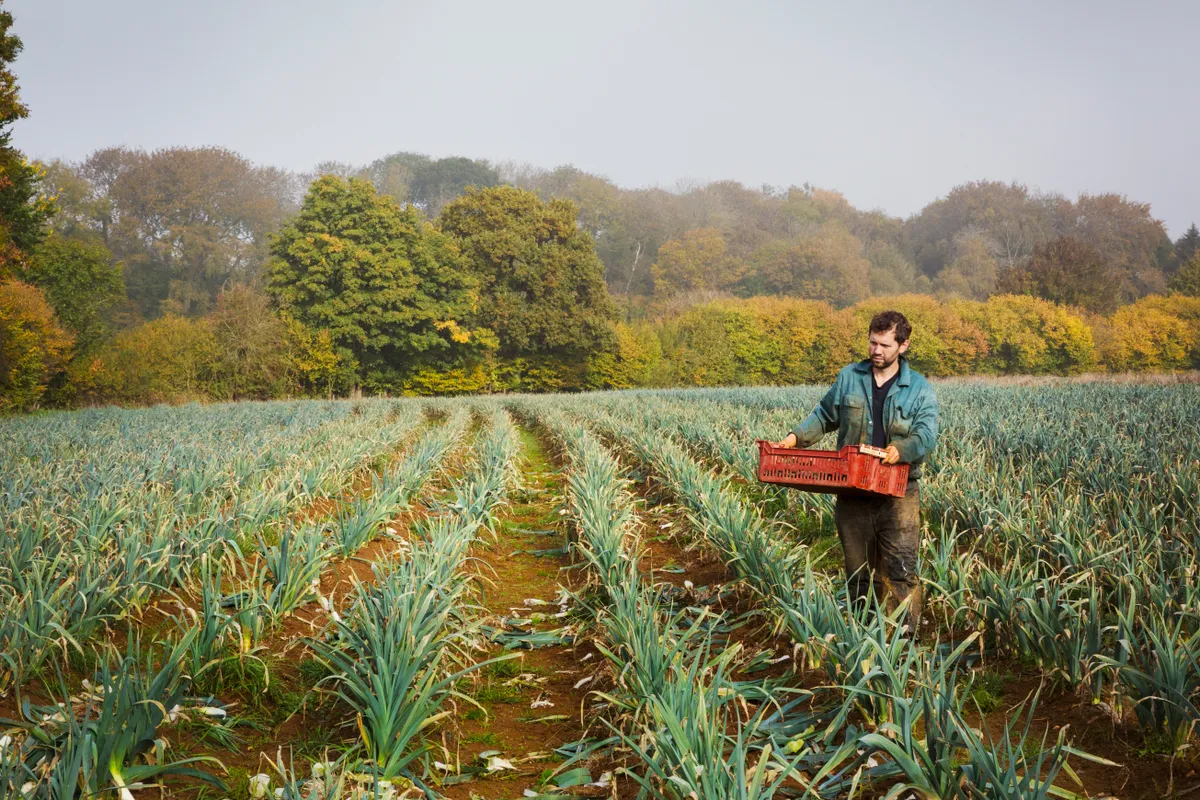
History of farming in Britain
Although the term ‘agriculture’ originated in the 17th century, we have been growing in the UK since prehistoric times. We don’t know exactly what turned our hunter-gatherer ancestors into farmers, but as different influences came and went, so did our farming methods. The Romans rotated crops with fallow fields, the Danes and Saxons opted for strip farming, and the Normans liked eating pork. The 1800s initially saw a golden farming age for the UK but the repeal of the Corn Laws in 1846 allowed cheaper imports, and by the outbreak of the First World War in 1914, we were importing half our food.
What kind of farms can be visited in the UK today?
Farming in the UK is still as important as it always was. In 2020, it provided half of what we eat, employed around 500,000 people and contributed 0.5% of our gross domestic product. Our farmers and growers are responsible for animal and plant health as well as our natural environments.
They look after 33 million sheep, 5.1 million pigs and 9.6 million cows, as well as growing an impressive yield of cereals, oilseeds, sugar beet and horticultural crops. There are more unusual crops too; we can now drink tea from Scotland, sample ostrich from Lincolnshire and enjoy quinoa from Essex. If we choose, we can support our wine industry and shop for local cut flowers. The UK is a bountiful place, and it’s easier than ever to find out more about our national produce.
To really immerse yourself in farming techniques, why not volunteer to help out on a farm? WWOOF has been linking visitors with organic farms since the early 1970s.
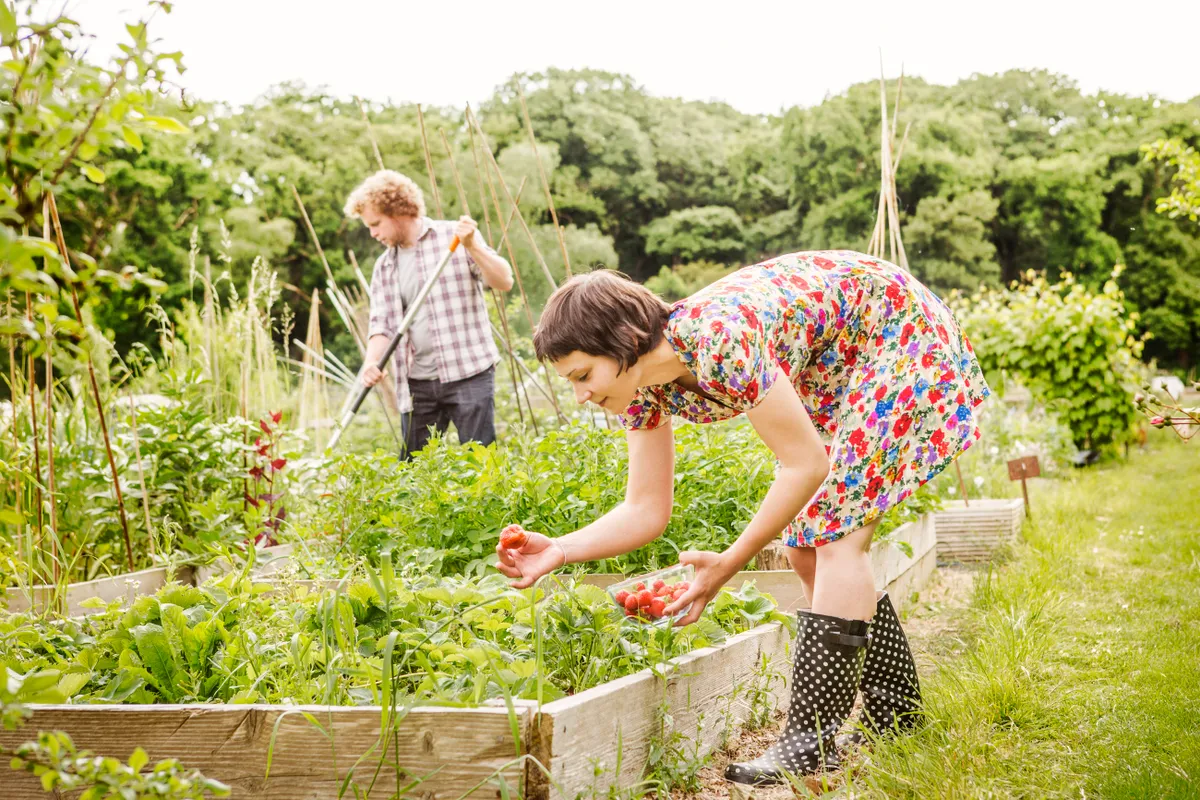
Best farms to visit in the UK
High Ash Farm, Norfolk
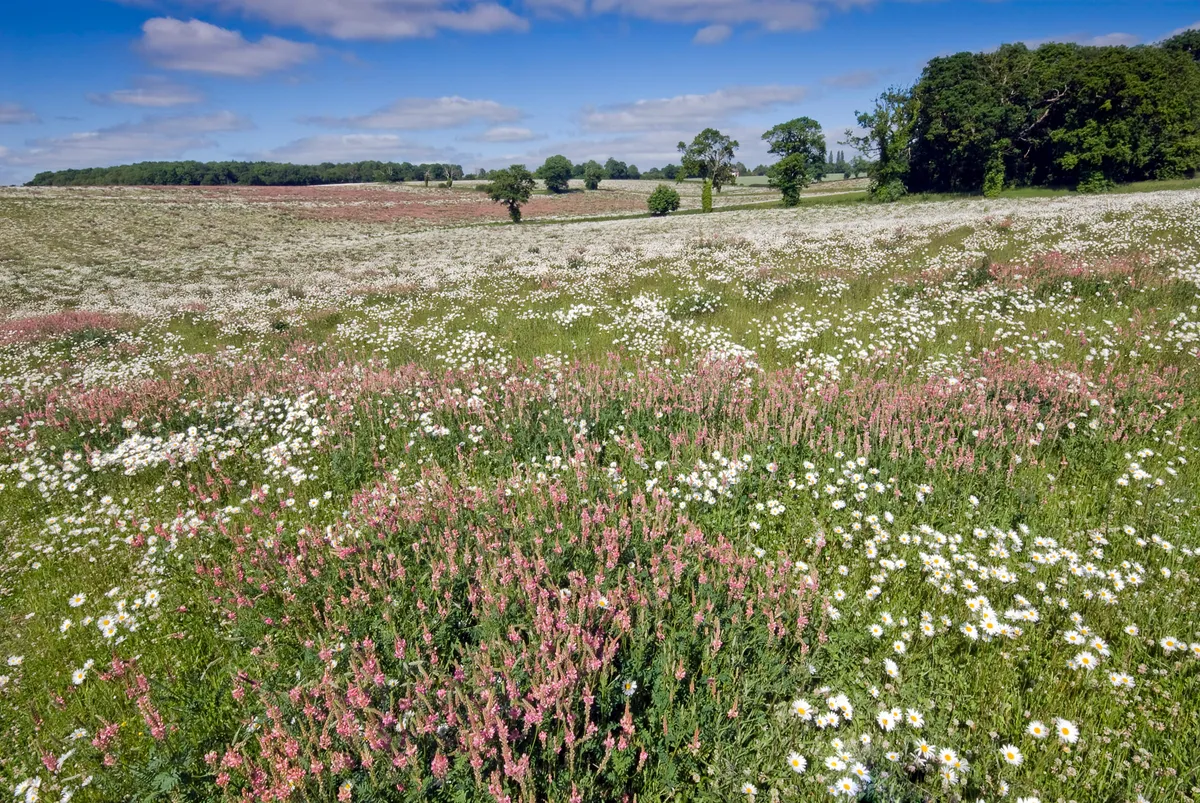
When farm owner Chris Skinner realised he was putting in all the hours under the sun only to sell his produce at a loss, he knew it was time for a change. In 2010, Chris sold his beloved combine harvester and, with the help of a Government grant, set about transforming High Ash Farm.
Over the next decade, Chris and his family planted thousands of wildflower seeds and hundreds of trees. He also planted miles of hedgerows in the very places that he had been paid to pull them out only a couple of decades before.
Now reaching maturity, the success of this project is palpable. The farm is home to ever-increasing numbers of wildlife species, including buzzards, foxes, deer, grass snakes and a wide range of invertebrates.
In late spring, over 10,000 orchids turn the fields purple – an enticing feast for the bumblebees that feed on their nectar. By the end of summer, foxes find cover under fields of sunflowers, and the fluffy seeds of rosebay willowherb and thistledown fill the sky. By autumn, flocks of murmuring starlings fill up on grubs and flying insects.
People have lived in this area for centuries and Chris recalls finding the intricately designed coins of the Iceni tribe while harvesting sugar beet. Indeed, the starting point of an easy 3.4-mile walk around the farm is Venta Icenorum, a Roman town and disputed home of Queen Boudicca, famous leader of the Iceni. Within the farm boundary you’ll also find traces of a Saxon graveyard.
- Visit highashfarm.com
Riverford, Devon
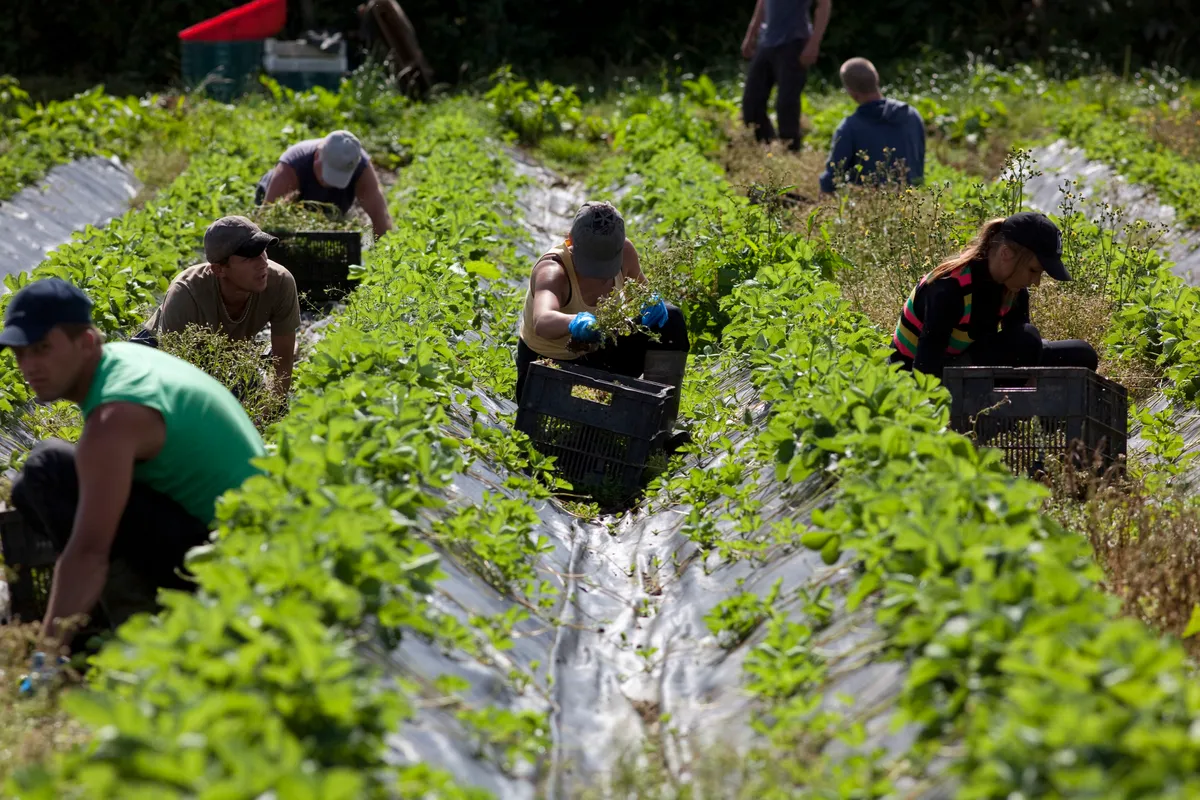
The name Riverford is now synonymous with organic farming and veg boxes, but back in 1986, its beginnings were humble. In a corner of his parents’ beautiful South Devon farm, Guy Singh-Watson began growing organic vegetables and distributing them to local friends. Today, Riverford still grows produce in Devon but also on three other regional organic farms in the UK and one in France.
Find out more about how Riverford grows its veg on a self-guided walk around the farm. Keep your eyes open and you will probably spot some of the produce that will soon be arriving on your doorstep. In just 1.5 hours, you will explore the farm area, the Field Kitchen polytunnel and the pretty Allotment Garden. You’ll be surprised by how beautiful food can look when it’s growing, especially when it is surrounded by stunning Devon countryside.
To get an even deeper understanding of your food, why not book one of the creative workshops? Options include sourdough baking and seasonal food fermentation, but at Riverford you don’t always have to cook your own dinner. The Riverford Field Kitchen on site takes an innovative approach to dining. Chefs serve a seasonal set menu, which is vegetable-based and selected directly from the fields next door. With only three sittings a day, the whole restaurant is served together.
During the summer months, Riverford also offers Field to Fork experiences, which allow you to explore the garden with an expert guide before sitting down to enjoy the flavours of the food you have just been talking about.
- Visit riverford.co.uk
Ravenseat, North Yorkshire
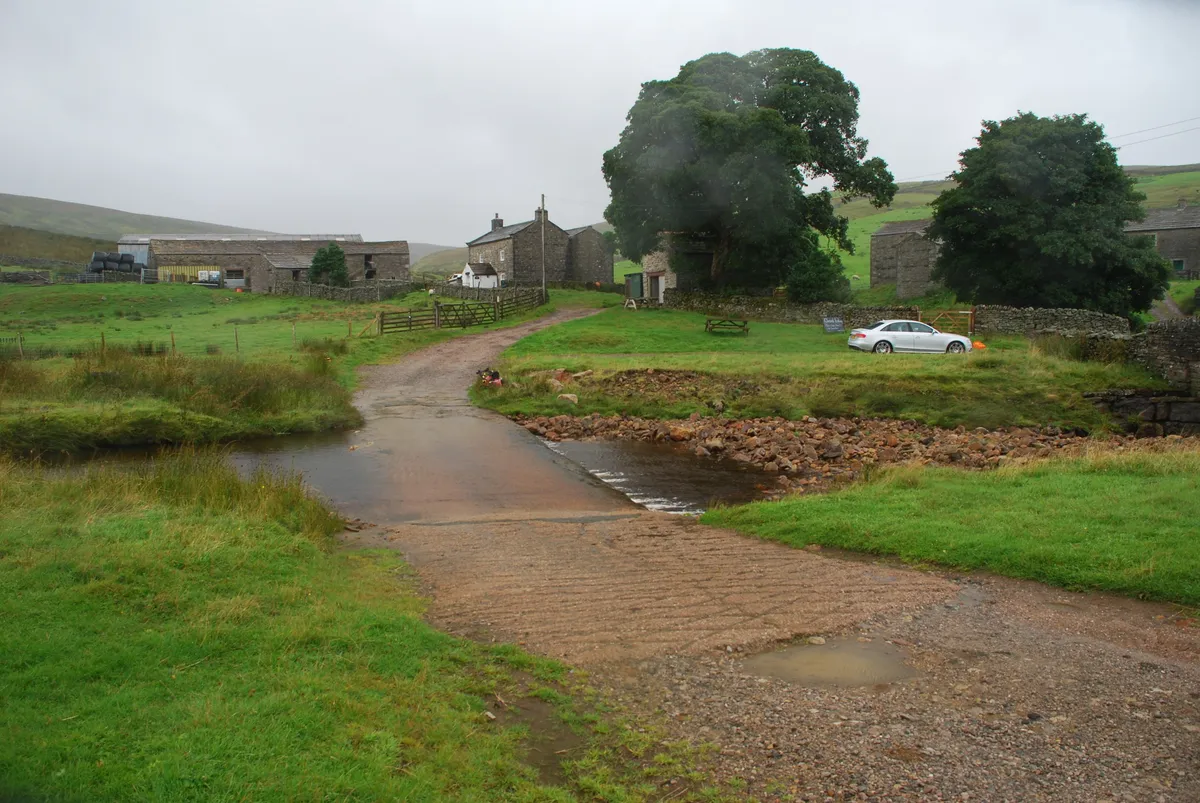
At the head of the sweeping valley of Swaledale, you will find the remote Yorkshire Dales farm of Ravenseat. It’s a working farm, home to the Owen family, and has become well-known since the airing of Channel 5 show Our Yorkshire Farm, which follows the daily farming life of Amanda, Clive and their nine children. The family work hard all year round, tending to their flock of over 1,000 Swaledale sheep, a breed that is native to the valley and can be easily recognised by their black faces, white noses and eyes.
Between May and early October, cream teas are available most afternoons at the farm, even if the weather is inclement. There are picnic benches for visitors to use and it’s possible to take shelter in the barn if the rain sets in.
Amanda is also patron of Access the Dales, a charity that provides all-terrain wheelchairs for people with disabilities to access beautiful walks in the Yorkshire Dales. The Ravenseat hub has been set up to welcome children with disabilities and has a TerrainHopper mini available to borrow. There is also a Paratreker, a sturdy manual all-terrain wheelchair. To book a wheelchair, visit access-the-dales.com.
Llanerchaeron, Ceredigion
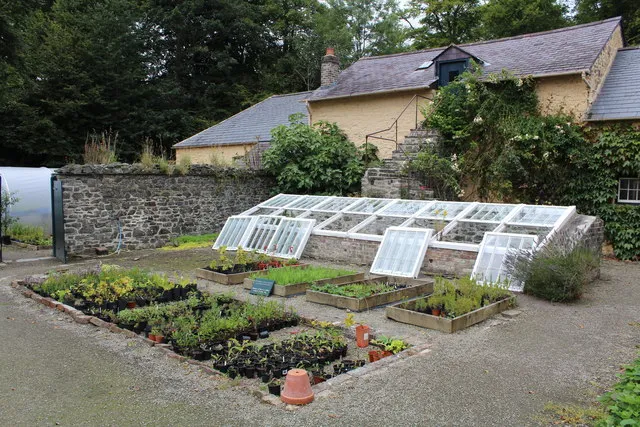
Welcome to Llanerchaeron. In a wooded valley through which Afon Aeron bubbles, this National Trust estate includes meadows, a lake, a walled garden (representing 200 years of herb, vegetable and fruit production) and a farmyard.
This is a peaceful place. The sensation is even true in the house, being uncluttered and elegant. The kitchen is large, to cater for the numbers needed to run a self-sufficient estate.
Surrounding the cobbled courtyard is a scullery, cheese store, brew house, bakehouse and salt house – where, over time, salt has corroded the plaster. Quarry tiles, rendered walls, honeyed light. The yard speaks of industry, but also simplicity.
In the gardener’s bothy, jars of seeds have handwritten labels in English, Welsh and Latin – ‘Goat’s rue / Ruw’r geifr / Gallega officinalis’. Llanerchaeron slows you down, until you wonder just how long you have been gazing at the espaliered apple trees. The meadows, too, are dreamy. Back in the yard, the Welsh cobs are peering over the stable door, the turkey is chattering, and the pigs are snoring.
To find out more, visit nationaltrust.org.uk/llanerchaeron
Acton Scott, Shropshire
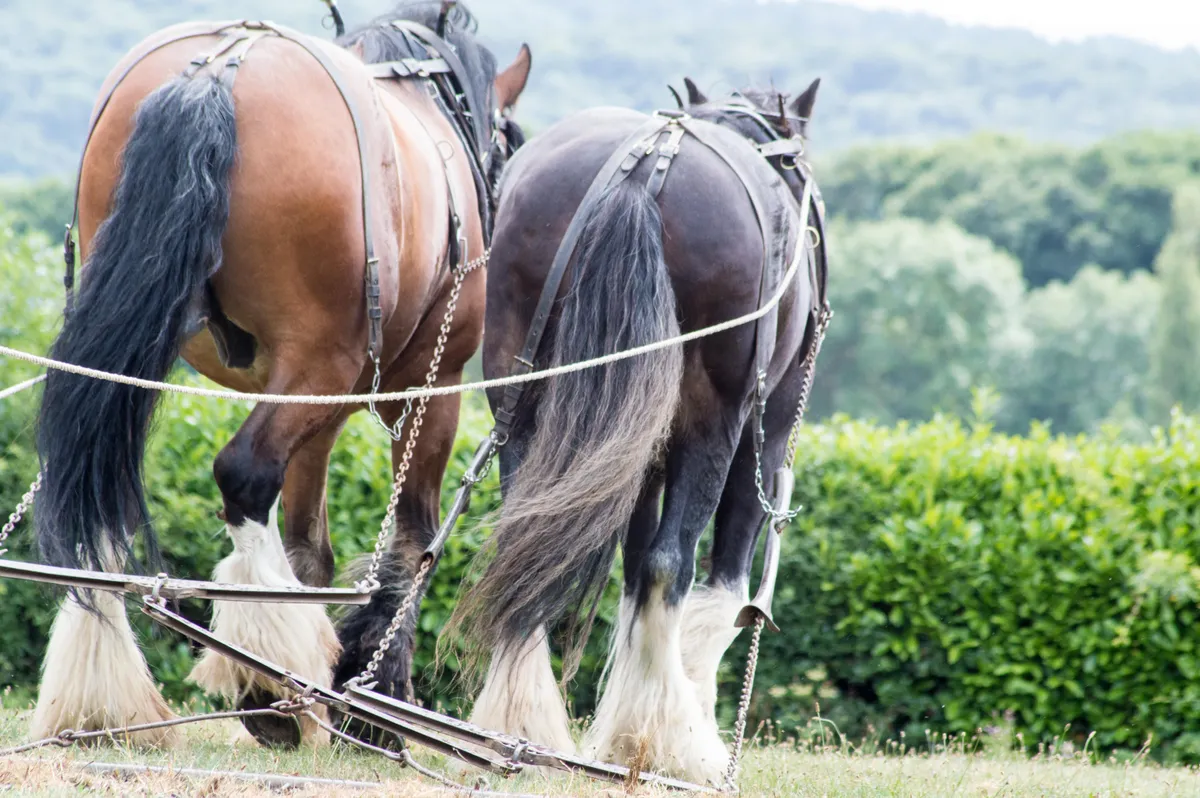
Over a generation ago, Acton Scott’s Historic Working Farm was created by Thomas Acton with one main aim – to preserve the rural farming practices that would soon be lost with the advancements of modern technology. Today, managed and funded by Shropshire Council, the farm offers visitors of all generations the chance to step back in time and gain an insight what rural life at the turn of the 19th century would have involved.
Situated amongst 18th-century grounds and the home of BBC Two's historical documentary Victorian Farm, the farm operates just as it would have when it was a working country estate. Horses work the land, and visits from the local blacksmith help to paint a picture of what life would have been like in this era.
Although Acton Scott is a museum, it also operates as a real working farm, supplying produce to local cafes and shops.
For more information, visit actonscott.com
St Martin's Vineyard, Isles of Scilly, Cornwall
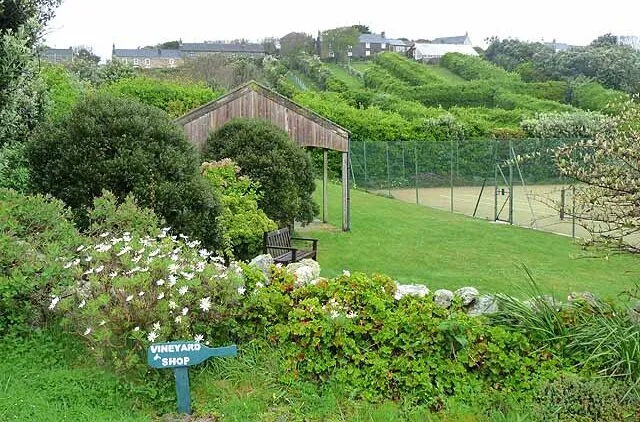
Journey from the British mainland to the Isles of Scilly, a tiny archipelago 28 miles off the coast of Cornwall, and you feel as though you’re arriving in another world.
These five inhabited islands are small patchworks of subtropical gardens and white-sand beaches in the midst of the ocean. On one, tiny St Martin’s, you will find the smallest and most south-westerly vineyard in Britain busy growing grapes, which flourish in the subtropical climate and frost-free winters.
To sample Scilly’s finest vintages, first you have to journey to the car-free island of St Martin’s, population 120. Catch the Scillonian ferry from Penzance on Cornwall’s coast or hop on a tiny prop plane to reach St Mary’s, the largest island in the archipelago.
From here, a brightly painted passenger boat will spirit you across to St Martin’s, where you can walk off the boat and on to a sandy path that looks over the azure water of the bay. Just along the flower-lined lane is the vineyard, its neat lines of vines overlooking the dunes of Par Beach, perhaps the most idyllic spot in Britain to raise a glass and toast the view.
Before you try a Scilly-grown wine, head east along the coast path on a six-mile stroll around the island.
- To find out more, visit stmartinsvineyard.co.uk
Rothiemurchus Estate, Highland
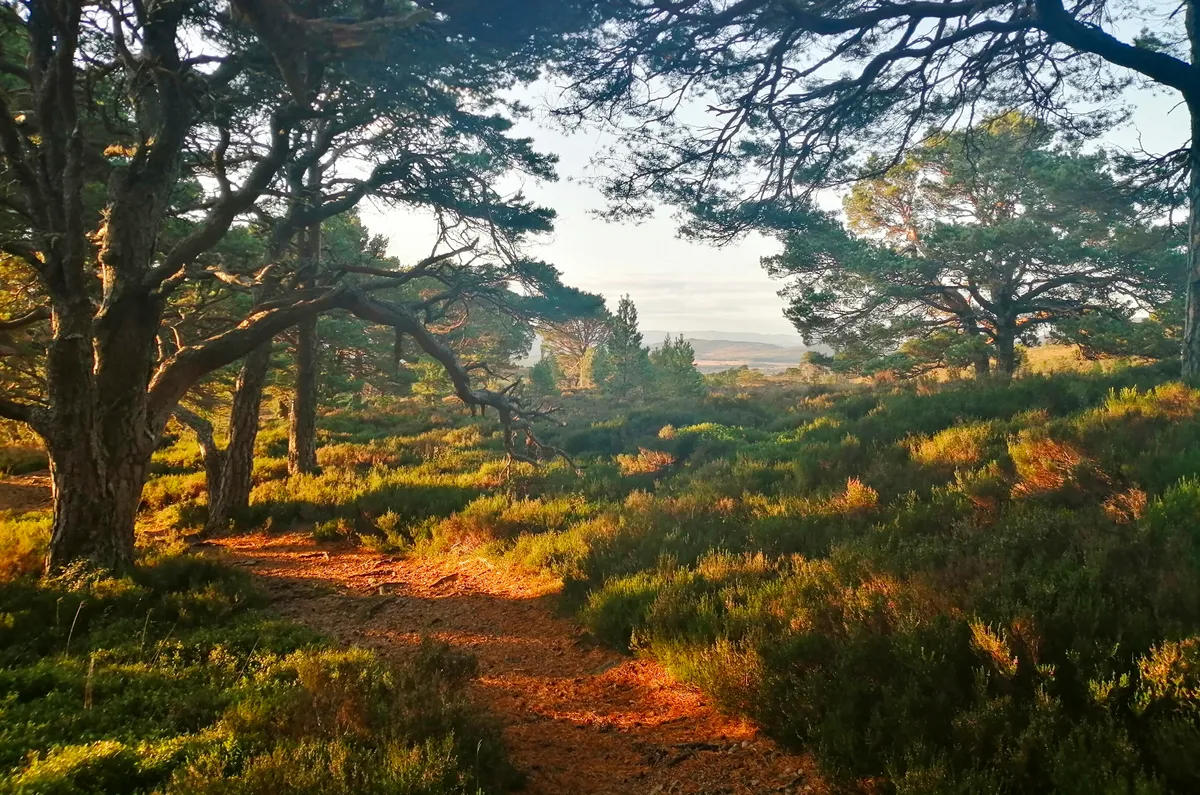
Bordered to the north-west by the bountiful River Spey and to the south by towering mountains, Rothiemurchus Estate in Strathspey incorporates some of the Cairngorms National Park’s most stunning landscapes. The privately owned, 9,700-hectare estate includes Braeriach – Britain’s third-highest mountain – glorious Loch an Eilein and the Rothiemurchus Forest,
one of the largest surviving ancient woodlands in Europe.
With such a varied landscape, Rothiemurchus provides an abundance of high-quality produce. Here they measure harvests in food metres, not food miles. The estate’s working farm supplies its farm shop with homegrown Scottish staples including beef, venison and trout. The Highland cow is Scotland’s oldest breed; the Rothiemurchus cows can trace their roots back to 1941 and the estate’s original herd of four cattle.
It’s not just about the large animals at Rothiemurchus. September is when their beehives produce the heather honey harvest. In July, the bees feed on the bell heather flowers before enjoying a floral feast on August’s ling heather. Heather honey has a distinctly darker colour than its earlier spring blossom honey and is higher in antioxidants.
Rothiemurchus is home to the longest-established private ranger service in Scotland. Book a Hairy Coo Safari and learn all about the estate’s photogenic ‘hairy heilan coos’, or help feed the red deer herd. Equine lovers of all ages and experience can explore the landscape on horseback, while the falconry experience allows visitors to fly different raptor species, including one of the largest eagles in the world, the white-trailed eagle.
No day out here is complete without harvesting some glorious views on the three-mile circular walk around Loch an Eilein, with its magical island castle ruins. For light refreshments, visit the Estate Farm Shop (9.45am–4.30pm), or The Barn café and takeaway (9.30am–4pm).
- For more information, visit rothiemurchus.net
